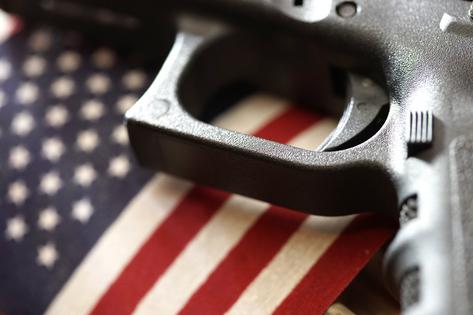A judge in Texas is using a recent Supreme Court ruling to say domestic abusers can keep their guns
Published in News & Features
For a large part of the history of the United States, domestic abuse was tolerated under the nation’s legal system. There were few laws criminalizing domestic violence, and enforcement of the existing laws was rare.
It was only in the past few decades that laws criminalizing domestic violence came to be widespread and enforced. But now, the U.S. is in danger of backtracking on that legal framework precisely because of the nation’s historical legacy of turning a blind eye to domestic violence.
On Nov. 10, 2022, a judge in the Western District of Texas struck down the federal law that prohibits access to guns for people subject to domestic violence protection orders. He did this based on a 2022 U.S. Supreme Court ruling, NYSRPA v. Bruen, which held that, to be constitutional, a firearm restriction must be analogous to laws that were in existence when the country was founded. In other words, disarming domestic abusers violates the Second Amendment because those types of laws didn’t exist at the founding of the country.
The ruling has since been appealed to the 5th Circuit Court. The outcome of the appeal is far is from certain.
We study the link between gun laws and domestic violence in the U.S. and know that backtracking on laws that prevent the perpetrators of domestic violence from getting their hands on guns will put lives at risk – the research has proved this time and time again.
At present, federal law prohibits persons subject to final – rather than temporary – domestic violence protection orders from purchasing or possessing firearms. In addition, 39 states and the District of Columbia have similar prohibitions on their statutes, with many expanding the restrictions to include individuals under temporary, or ex parte, orders prior to a full hearing.
Ruling that these laws are unconstitutional will put mainly women and children in danger. More than 50% of women who are murdered are killed by intimate partners, and most of those homicides are committed with guns. A 2003 study found that when an abusive man has access to a gun, it increases the risk of intimate partner homicide by 400%.
Women constitute the majority of victims of intimate partner homicide, and almost one-third of children under the age of 13 who are murdered with a gun are killed in the context of domestic violence.
Moreover, 68% of mass shooters have a history of domestic violence or killed an intimate partner in the mass shooting.
Enforcement of gun restrictions is spotty, with further research needed as to how systematically they are ordered and whether restricted individuals relinquish firearms they already possess. Nonetheless, research shows that firearm restrictions on domestic violence protection orders save lives. Multiple studies conclude that these laws are associated with an 8%-10% reduction in intimate partner homicide.
...continued








Comments